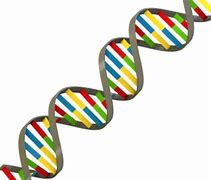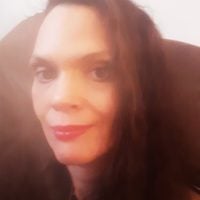The mystery that is family.
I didn’t know much about my dad’s side. Both grandparents died before I was even born. I didn’t meet all of my aunts, uncles, and cousins. Once, as a teenager, I asked the brave and forbidden question of my dad, “What were my grandparents like?” I was hoping to mine any information I could. Anything. Hair color. Eye color. Hobbies. Funny family anecdotes. Something. Just something.
Not surprisingly, there was nothing provided. My dad responded with a short answer, “They were okay.”
Oh, great. That tells me everything I need to know, I guess. Mysteries were instantly solved. I felt more connected to my family and to my history. I now had greater sense of peace and contentment.
Like many of us out there, my family held strict codes of silence. We just didn’t talk about things. This was fertile ground for both addictive and abusive behaviors to thrive, throughout the family structure, in various, painful ways. The silence was not so silent. Sometimes, it screamed with the uneasy, nervous sense that something awful must have really happened to warrant everyone clamming up.
There is a recovery adage which asserts, “You are as sick as your secrets.”
When I received my 2017 breast cancer diagnosis, it began a series of revelations about the unknown and the issue of secrecy. When I heard the word, “cancer,” it truly was a case of I was as sick as my secrets… or, maybe, more accurately, as sick as my family’s secrets.
Apart from ultrasounds, the biopsies, an MRI, the bloodwork, and the surgery, a genetic test I had done revealed a deeper truth. I was predisposed to certain cancers, including breast cancer, because I had a particular gene, called the MAP gene.
And why did I have this gene? Because it was common amongst Jewish people.
What?
This was a bit shocking to learn.
After all, I had been raised in a rural, Minnesota setting. There were no synagogues in my hometown. I grew up in the Lutheran denomination, largely in step with the corresponding and predominant Scandavian-infused communities. I was doing my utmost, as a kid, to avoid the unpleasant Lutefisk (a Scandanavian dish of white fish soaked in lye. I am not kidding. Look it up for yourself). It had never entered my mind that Geffilter fish could be there as well.
So, when I saw the black and white test results, indicating that, yes, there was more than the stuff of the Norwegian accent, caricatured by the 1990s film “Fargo” going on, things started making more troubling sense to me. The decades of maladaptive coping mechasisms: the drinking, the smoking, the failed relationships, the vow of silence that had to be kept, without fail, no matter what.
And something else that popped up within my family lines… the presence of cancer. Cancers, more accurately. As I counted the number of family members, particularly female family members, I might add, I started noticing a disease theme occurring.
And it made me wonder about the potentially life threatening impact of this supposedly dormant gene. Was it just lying there, from person to person, from year to year, just waiting to erupt? There were many eruptions already before my diagnosis. My health volcano was just added to the pile.
Since my diagnosis, years ago, I have repeatedly heard the statement, “No one knows exactly why a person gets cancer.” This is uttered, even in the midst of genetic testing results. It can drive a person mad, especially if that individual, like me, is wanting those highly coveted answers to the impossible, mysterious why questions.
I’m not here to bash my family. Again, many of us, especially those of us who come from immigrant families, are not strangers to older generations remaining silent about their lives. Trauma, shame, and deep fears are just a few reasons for the silence.
But the silence does cost.
Upon learning of my genetic test results, I have often thought of how it may have been helpful for me to know about the potential “family secret.” Could I have stopped cancer from hitting my life? Yeah, I know. That’s probably doubtful.
But still, that genetic information, hidden within familial strands, was important data for me to know.
Perhaps learning about it earlier could have changed things significantly.
I’ll never know for sure. More frustration abounds at that thought.
“You are as sick as your secrets.”
The Map gene existed. That’s science; that’s DNA. But, perhaps, just as potent, maybe even more so, was the shame attached to the secrecy of my family’s blood. Epigenetics has been a newer study, linking generational trauma to changed DNA structure within the individual, affecting his/her sensitivity to diseases like cancer. It can be passed down through the generations, significantly changing the health landscape.
Was mine changed because, long ago, some ancestor fled a pogrom, felt shame, fear and bigotry because of who he/she was? Did that trauma, that shame, and that fear forever alter how well family members could fight off cancer?
Again, I’m left with questions, not answers. But the questions are worth asking. Cancer, after all. Cancer.
I’m not the first person within their family to have truths shrouded in mysteries, silence, and lies. I’m not the first person to wonder what the real story was behind it all. And sadly, I won’t be the last, either.
Cancer is, however, a good argument against the familial secrecy so many of us confront. Health history, is just as important as the history which tells us where we come from. It’s probably even more important.
Sometimes, it’s even a matter of life and death.
Therefore, I strongly plead of anyone who knows a “family secret” to disclose it, to not hide it. Many of these secrets involve the coverup of ancestry, of a perceived “blight” on the family tree. But that “blight” may just hold the key to the awareness and prevention of disease. “The truth does set you free,” as the famous scripture goes.
Life, health, and truth issues all deserve as much freedom as possible, don’t you think?
In my opinion, we all deserve to be well, free from every kind of cancer, including those of the mind, heart, and spirit. Being well starts with knowing and accepting the truth.
I hope we can all get closer to what that means to each one of us today.
Copyright © 2020 by Sheryle Cruse







Read 0 comments and reply